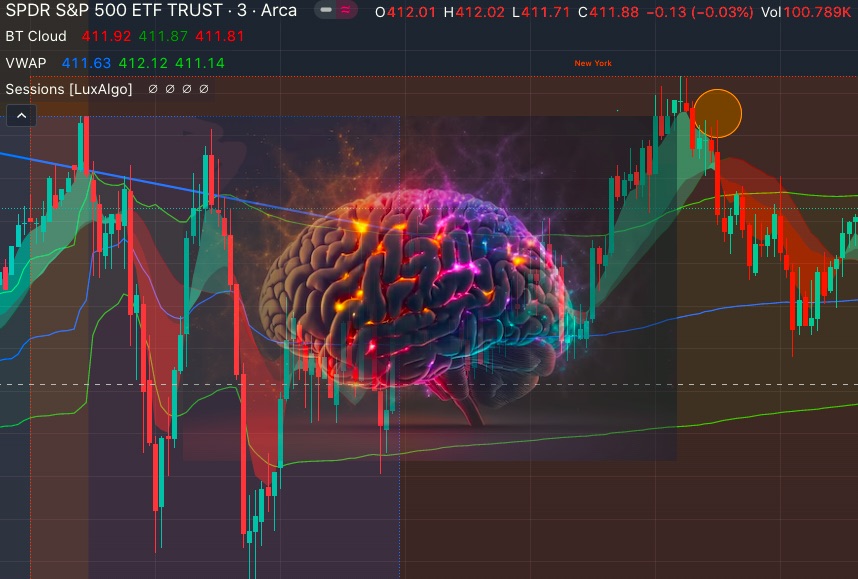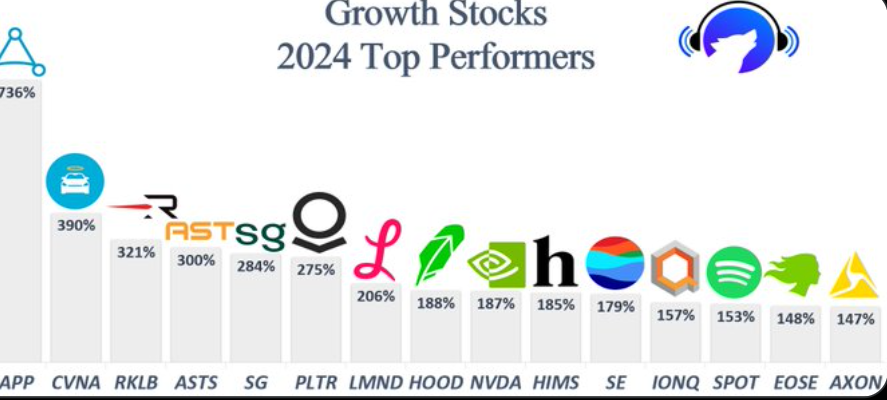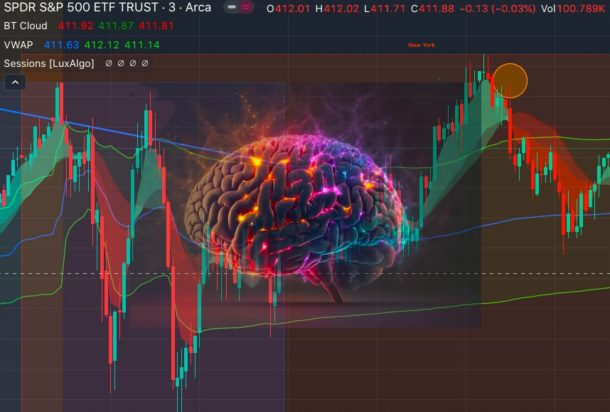Trading in the financial markets can be a highly lucrative venture, but it's also a game of patience, skill, and discipline. Success in trading requires more than just having a solid strategy; it requires a trader to be aware of their psychological state and how it can impact their decision-making.
The psychology of trading is a fascinating subject that's been studied extensively over the years. In this post, we'll explore seven psychological trading tips and traps that every trader should be aware of.
Keep Your Emotions in Check
Trading can be an emotional rollercoaster, with highs and lows that can impact a trader's decision-making. Fear, greed, and anxiety are all common emotions that can cause a trader to make impulsive decisions that result in losses.
To become a successful trader, it's crucial to keep your emotions in check. This means learning to detach yourself from the emotional highs and lows of trading and making decisions based on logic and reason rather than fear or greed.
One way to keep emotions in check is to have a solid trading plan in place. By having a plan that you can rely on, you'll be less likely to make impulsive decisions based on emotions.
Stick to a Trading Plan
A trading plan is a set of rules that a trader follows to make informed trading decisions. A well-defined trading plan helps you stay focused and disciplined, preventing impulsive decisions. It also helps you avoid trading on emotions, as you have a set of rules to follow.
A good trading plan should include entry and exit points, risk management strategies, and a list of trading instruments to focus on. By sticking to a plan, you'll be able to minimize the impact of emotions on your trading decisions and increase your chances of success.
Manage Risk
Risk management is a critical aspect of trading that's often overlooked by novice traders. In trading, there's always a risk of losing money, and it's essential to manage that risk to avoid significant losses.
One way to manage risk is to set a stop loss. A stop loss is a predetermined price point at which you'll close your position if the market moves against you. By setting a stop loss, you'll be able to limit your losses and protect your trading capital.
Another way to manage risk is to limit your trades to a percentage of your account balance. This means that you'll only risk a small percentage of your capital on each trade, reducing the impact of any losses.
Don't Chase Losses
Trading losses are a natural part of the game, and it's essential to learn how to deal with them. One of the biggest mistakes that traders make is trying to recover their losses by making more trades.
Trying to recover your losses can lead to a downward spiral, causing you to make more significant losses. This is known as the "revenge trading" trap, and it's something that every trader should avoid.
To avoid this trap, it's essential to cut your losses and move on to the next trade. Don't try to recover your losses by making more trades; instead, focus on your trading plan and wait for the next opportunity to present itself.
Take Breaks
Trading can be a stressful activity, and it's essential to take breaks to reduce stress and stay focused. Taking breaks can also help you avoid burnout and make better decisions.
One way to take breaks is to set a timer for 25 minutes and take a five-minute break after each session. During your break, you can stretch, meditate, or do something that relaxes you.
It's also important to take longer breaks to recharge your batteries. Take a day or two off from trading each week.
To top up your trading skills, consider joining TopStep where they give you training and a funded account to trade with!
Stay Informed
Keeping up-to-date with the latest news and events that could impact the markets is essential for any trader. Having a good understanding of market conditions can help you make more informed trading decisions.
There are various ways to stay informed, such as following financial news websites, subscribing to newsletters, and attending trading seminars. It's also essential to keep an eye on economic indicators, such as GDP growth, inflation, and unemployment rates.
By staying informed, you'll be able to anticipate market trends and make more informed trading decisions.
Avoid Overconfidence
Overconfidence is a common trap that many traders fall into, especially after a string of successful trades. Overconfidence can lead to overtrading and taking on too much risk, which can ultimately result in significant losses.
To avoid overconfidence, it's important to stay grounded and maintain a level head. Don't make rash decisions based on past successes, and always stick to your trading plan.
It's also crucial to keep a record of your trades and analyze them regularly. This will help you identify any mistakes you've made and learn from them.
Becoming a successful trader takes time, patience, and a lot of practice. By following these seven psychological trading tips and avoiding common traps, you can improve your chances of success in the markets.
Remember to keep your emotions in check, stick to a trading plan, manage risk, avoid chasing losses, take breaks, stay informed, and avoid overconfidence. With these tips in mind, you'll be well on your way to becoming a better trader.
To top up your trading skills, consider joining TopStep where they give you training and a funded account to trade with if you pass the tests!

Goal Setting: The Key to Personal and Professional Success
The ability to set and achieve goals is more crucial than ever. Whether you're a student, professional, or entrepreneur, understanding the art of goal setting can be the difference between merely dreaming and actually realizing your aspirations. This article delves...

Where Is Society Going with The Top 15 Growth Performers of 2024?
As we analyze these stocks and their sectors, we can infer several key observations about where society may be heading in the near future. These stocks span a wide range of industries, from technology and artificial intelligence to electric vehicles and healthcare,...

Everything to Know Before Buying an Oura Ring
The Oura Ring is a sophisticated health and fitness tracker designed to provide comprehensive insights into various biometric metrics but it has a few bells and whistles to consider before buying an Oura ring. Launched in 2015, it has gained popularity among fitness...

Top Audiobook Recommendations of Elon Musk.
Elon Musk replied to a tweet that had asked for audiobook recommendations. The Story of Civilization by DurantIliad (Penguin Edition)The Road to Serfdom by HayekAmerican Caesar by ManchesterMasters of Doom by KushnerThe Wages of Destruction by ToozeThe Storm of Steel...

How to Learn Better: A Review of “The Science of Rapid Skill Acquisition”
Learning is a lifelong journey, but mastering new skills doesn't have to be a slow, arduous process. In his insightful book, "The Science of Rapid Skill Acquisition," by Peter Hollins is a comprehensive guide that explores advanced methods for learning, retaining, and...

Achieving Healthy Hair: Preventing Hair Loss and Promoting Hair Regrowth
Preventing Hair Loss:
Stress Management: Practice stress-reduction techniques like meditation, yoga, or deep breathing exercises, as chronic stress can contribute to hair loss.
Scalp Care: Keep your scalp clean and free from excessive oil, dirt, and product buildup to maintain a healthy environment for hair growth.
Avoid Hairstyling Damage: Minimize hairstyles that pull tightly on the hair, such as tight ponytails or buns, as they can cause traction alopecia.
Protect from Environmental Damage: Shield your hair from harsh environmental elements like sunlight, pollution, and chlorine by wearing protective headgear or using appropriate hair products.

How PTSD Was Cured Four Times in 5 Hours
This case study shows how a non-drug intervention can be successfully used to cure PTSD in a Vietnam veteran in under 5 hours. 'Carl, our pseudonymous client, met criteria for at least one Diagnostic and Statistical Manual of Mental Disorders (DSM IV) Criterion A...

The Evolutionary and Psychological Challenges of Stock Trading
Stock trading is a complex activity that challenges our cognitive abilities and emotional control. Despite the potential for significant financial gains, many individuals struggle to succeed in this arena. The reasons for these difficulties are deeply rooted in our...

Everything You Need to About Short Term Memory But Forgot to Ask
Short-term memory has several key characteristics and limitations, especially when it comes to interruptions: 1. Limited capacity: Short-term memory can typically hold only about 7 (+/- 2) items at a time. This limited capacity makes it vulnerable to disruption when...

Why so Many School Shootings? The Tragedy of School Shootings in America: A Look into the Deadliest Incidents and the Minds Behind Them
In the annals of American history, few events have left as deep and lasting a scar on the national psyche as school shootings. These tragic incidents have not only claimed countless innocent lives but have also fundamentally altered the way we view educational...

Ways to Impact Your Business with AI: Transforming Industries and Operations
If you are looking to impact your business with AI (Artificial Intelligence) now that it has emerged as a transformative force in the business world, revolutionizing workflows, methodologies, and entire industries, this post will give you some insights on how to...

What is a “Woke Mind Virus”: Unpacking a Concept in Modern Discourse
In recent years, the term "woke mind virus" has ignited intense debates across political and cultural landscapes. But what does it really mean? Where did it originate? And why is it causing such a stir? In this article, we'll break down the concept, explore its...















